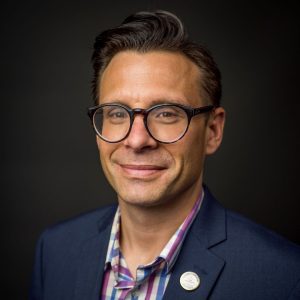A common fear of Bible teachers and small group leaders is being asked tough questions for which you do not have an answer. No one wants to feel embarrassed, unprepared, or unqualified. Sadly, this common fear keeps some otherwise willing and able Christians from serving as teachers and group leaders. My goal is to help you move past your fears into faithful service by communicating five ways to equip yourself for tough questions.
First, be willing to admit what you do not know. No amount of preparation or education will enable you to faithfully and accurately answer every question. Be prepared to admit what you do not know, and express a willingness to investigate and report back to the person or group. In doing so, you model both humility and perseverance.
Second, be familiar with common questions. Any Bible teacher or small group leader will, at some point, be asked common questions, such as why a good God allows evil and suffering or how we can know that Jesus actually rose from the dead. While you cannot answer all the questions, you should be prepared to answer these (and a handful of other) common questions and objections. If you need help, ask your pastor or another Christian leader to guide you toward good resources.
Third, pray for wisdom. Any teaching opportunity requires both preparation and wisdom. It requires wisdom to know how, when, and where to address a topic or answer a question. In some situations, answering a question aids your purposes as a teacher. In other situations, answering a question needlessly distracts from your purposes and the class’s attention. It requires wisdom to know what love requires in the moment, and so pray for wisdom, and seek wisdom by talking to more experienced teachers.
Fourth, know the Bible. The best defense is a good offense. The sword of the Spirit, which is the Word of God, is always your greatest asset. It’s good to read C.S. Lewis, Blaise Pascal, John Lennox, and other Christian apologists. However, there is no substitute for knowing the Word. Jesus modeled a reliance on Scripture in his own ministry as he responded to questions and objections. Referring people to the Bible itself is a practical exercise in a reliance on the sufficiency and authority of Scripture. While you may be wrong, the Bible will always be right.
Fifth, always bring the conversation back to God. Questions and objections can sometimes be diversions to personal conviction. Bringing the conversation back to God is helpful because the reasonableness of Christianity is inseparable from God’s existence and attributes, and because a personal relationship with God is necessary to accept the teaching of Christianity in a way that produces obedience. The mind will never be open if the heart remains closed.
Read More

Hope in Suffering
Gateway student Matt Bodden is an evangelist who is ready to answer the question of suffering with the gospel.

The Gateway Journal of Theology Inaugural Issue
Read all new articles in the inaugural issue of The Gateway Journal of Theology.
Listen
Prophets | Daniel Part 2
Now with the historical portion of Daniel done, Dr. Wegner takes us through the visions of beasts and years. All these figures intending to show us something. What does it all tell us about God?

Theology and Missiology with Dr. Peter Lillback
Rev. Dr. Peter Lillback, president of Westminster Theological Seminary, PA, and founder of The Providence Forum, joins Dr. Hopkins to chat about the inclusion of young children during the main services in church, the religion and theology of George Washington, and the

Watch

Jonathan Edwards and the Asbury Revival
Chris Chun and Chris Woznicki discuss the signs of true revival, signs of the work of the Holy Spirit, and why it is important to critically assess the characteristics of revival in a spirit of charity.

Jonathan Edwards and the Baptists | Douglas Sweeney, Nathan Finn and Chris Chun
Dr. Douglas Sweeney and Dr. Nathan Finn joined Dr. Chris Chun for a panel discussion on Jonathan Edwards, recorded live at the SBC Annual Meeting in Anaheim.




